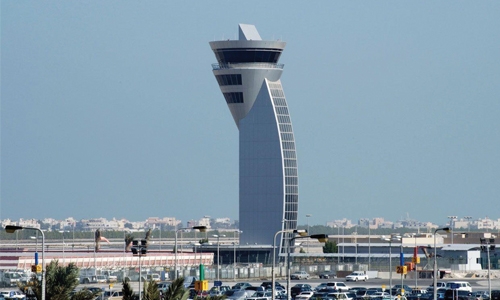UAE plaint to ICAO over interception of planes by Qatari jets
Dubai : The United Arab Emirates (UAE) has made an official complaint to the UN’s International Civil Aviation Organisation (ICAO) over two alleged interceptions of its passenger jets by Qatari fighter jets, an official said yesterday.
The incidents on Monday morning were “deliberate hostile acts against civilian aircraft”, said Ismaeil Mohammed Al Blooshi, assistant director, aviation safety sector, at the UAE’s General Civil Aviation Authority (GCAA).
The Qatari fighters came within 2.5 nautical miles of one of the passenger jets, Blooshi said. He added that the fighter jets were also spotted by one of the commercial pilots. “These were reckless hostile acts that endangered the lives of many hundreds of people for reasons unknown to us,” he said.
The UAE will accuse Qatar of violating the Chicago Convention, which governs the use of airspace, in the complaint to the International Civil Aviation Organization, GCAA Director-General Saif Mohammed al-Suwaidi told Reuters.
Suwaidi said the UAE aircraft had been intercepted in airspace managed by Bahrain.
He declined to say whether their flight paths had taken them across Qatar, the most common route from the UAE to Bahrain International Airport.
The UAE has banned Qatari aircraft from using its airspace as part of the restrictions imposed since June. Qatar has not reciprocated. Suwaidi said that Bahraini radar had determined the fighter jets originated and returned from Doha, and pilots of the UAE commercial planes had identified the aircraft as Mirage war planes, which are used by several Arab air forces, including Qatar’s.
Suwaidi declined to say which airlines had been intercepted. Bahrain’s state news agency BNA earlier reported that they were Emirates and Etihad flights.
Suwaidi said he was confident that ICAO could stop Qatar from repeating Monday’s incidents but that the UAE could consider to re-routing its flights as a precautionary step.
Changing flight paths can be costly for airlines if it means flying longer routes and subsequently using more fuel, often their biggest single operating expense.
Asked if the UAE would consider escorting civilian aircraft, Suwaidi said that the UAE could “use different tools to protect its airlines.” He did not elaborate.
Related Posts

